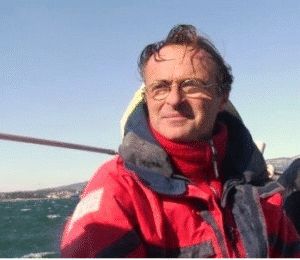Martha R. Newton is recognized as a pioneer in the field of ocean economics. Her work has profoundly influenced our understanding of maritime resources and their sustainable management. Through her research, she has highlighted the importance of viewing marine ecosystems not only as a source of resources but also as vital elements for maintaining biodiversity and ecological balances. She has advocated for innovative and sustainable approaches to economic responsibility, thus shaping contemporary policies related to ocean uses. Her legacy endures through the numerous initiatives she has inspired, aiming to promote a respectful and sustainable future for our seas.
|
IN BRIEF
|

Table of Contents
ToggleMartha R. Newton: Pioneer of Ocean Economics
Martha R. Newton is an emblematic figure in the field of marine economics, recognized for her significant contribution to research and the development of oceanic resources. Born in Charleston, South Carolina, in 1978, she grew up close to the coast, developing an early interest in the sea and its ecosystems. Her academic journey was marked by a passion for the environment, marine biology, and economics, disciplines that she ultimately combined to form a new approach to the economic analysis of maritime resources.
After earning her degree in marine biology from the University of South Carolina, Martha continued her studies at Harvard University, where she obtained a PhD in natural resource economics. Her thesis was titled “The Economic Value of Marine Ecosystems: A Quantitative Analysis,” and she was acclaimed for her innovative approach that integrated complex economic models with marine biology. This research laid the groundwork for her future work in blue economy.
At the beginning of her career, Martha R. Newton joined a non-governmental organization dedicated to marine conservation, where she developed programs aimed at assessing the economic impact of overfishing and coastal activities on local communities. Her studies revealed that maritime resource management policies had not only environmental implications but also significant social and economic effects on coastal populations. This awareness prompted governments to adopt sustainable ocean management policies.
As a professor at the University of Southern California, Martha has trained numerous students in the field of ocean economics, sharing her expertise and passion. Her courses focus on the economic analysis of maritime policies, the management of fishery resources, and the socio-economic impacts of climate change on marine ecosystems. She is known for her interactive teaching method, encouraging students to engage in practical projects within the local community.
In 2015, Martha launched an ambitious project: a global initiative aimed at mapping the economic value of marine ecosystems. This project brought together researchers, economists, and decision-makers to quantify the ecosystem services provided by the oceans, such as climate regulation, water filtration, and food provision. This work has been crucial in raising awareness of the importance of marine conservation within the framework of sustainable development.
Martha R. Newton is also a sought-after speaker on the international stage, participating in forums dedicated to oceans and natural resources. Her commitment to ocean protection and research on the blue economy has earned her several awards, including the Global Leadership Prize in Marine Conservation in 2020. Her work has inspired a new generation of scientists and economists, making her an unwavering pioneer in ocean economics and a key voice in the fight for the sustainability of maritime resources.
Martha R. Newton has established herself as an emblematic figure in the field of ocean economics, promoting a sustainable approach to the exploitation of maritime resources. Her work has inspired a collective will to reassess human interactions with marine ecosystems and to engage in practices that ensure the sustainability of our oceans while supporting local economies.
Vision of the Blue Economy
The vision of the blue economy espoused by Martha R. Newton rests on the principle that the use of maritime resources must be both profitable and environmentally respectful. By integrating innovative strategies, she proposes to address both economic and ecological needs. To learn more about the link between economics and marine sustainability, visit this link.
The Environmental Challenge
The oceans face numerous environmental challenges, from plastic pollution to overfishing. Martha R. Newton emphasizes the importance of taking concrete actions to preserve this vital ecosystem. Her approach involves bringing together countries, scientists, and economic actors to develop integrated solutions. To explore these environmental challenges in more depth, check out this article.
Marine Innovation and Technologies
For Martha, the answer to the challenges of ocean economics lies in innovation and the application of the latest technologies. This includes the assessment of marine biotechnologies that are essential for ensuring a sustainable future for our oceans. To understand why this field is crucial, take a look at this site.
International Collaboration
Newton stresses the need for enhanced collaboration between states, the private sector, and civil society to achieve common goals. Ocean management requires a multidisciplinary approach that confronts economic interests with sustainability imperatives. An overview of the various actors and their roles can be found in this article on maritime security.
Local and Sustainable Engagement
Finally, Martha R. Newton emphasizes the importance of local initiatives that support coastal communities while protecting marine ecosystems. These initiatives may include educating fishermen and implementing sustainable fishing practices to balance economic needs and environmental concerns. For an in-depth analysis of the impact of oceans on local issues, discover this article.
Based on the works of Martha R. Newton, it is clear that ocean economics must integrate innovative solutions while involving stakeholders at all levels. Her interdisciplinary approach and practical recommendations represent a model to follow for the future of our oceans.
Martha R. Newton is often hailed as one of the emblematic figures of ocean economics, a key field for sustainable development and the preservation of maritime resources. Her career is marked by significant contributions that have shaped the history of marine and blue economics. With a focus on innovation and sustainability, she has raised public and policymaker awareness of the dangers facing our oceans while proposing practical solutions rooted in economic reality. This article explores her contributions, as well as the persistent challenges in this vital sector.
An Innovative Journey
Born in an era when few voices rose in favor of marine environmentalism, Martha R. Newton quickly understood the importance of balancing the exploitation of maritime resources with their conservation. Beyond her studies, she began collaborating with researchers and international organizations to develop innovative strategies that integrated both economic and ecological aspects.
This approach has been several years ahead of current discussions on the , a concept that has become essential today. Through her publications and lectures, she has mobilized diverse stakeholders around the need for sustainable management of ocean resources.
The Stakes of Maritime Economy
In her approach, Martha R. Newton has always highlighted the crucial issues related to the maritime economy. She has clearly articulated how activities such as fishing, coastal tourism, and natural resource exploitation can negatively impact marine ecosystems when not managed properly. Significant works, notably those supported by institutions like the World Bank, underscore that the overexploitation of oceans jeopardizes our future. The consequences, both economic and environmental, are alarming and require urgent action.
Contributions and Future Perspectives
Martha has also played a crucial role in formulating policies aimed at protecting the oceans while supporting local economies. She is known for helping establish collaborations between governments, NGOs, and the private sector to develop holistic solutions. This framework has enabled the establishment of principles on maritime security and sustainability, concepts that are now prevalent in contemporary debates on maritime resource sustainability.
The initiatives she has supported have often been cited as examples of best practices in sustainable maritime development, making her insights invaluable for future generations who will have to work on implementing these ideals.
The Weight of Her Ideas in the Face of Contemporary Challenges
Despite her undeniable contributions, the challenges facing ocean economics remain immense. Illegal fishing, pollution, and climate change threaten the advances made through the efforts of pioneers like Martha R. Newton. The need for constant commitment and rigorous implementation of maritime policies is increasingly urgent.
Newton’s ideas, while inspiring, must be confronted with the current reality of the oceans, where economic pressures can lead to decisions contrary to long-term sustainability. Future success will depend on the ability of actors to connect lessons from the past to concrete actions in favor of our oceans.









